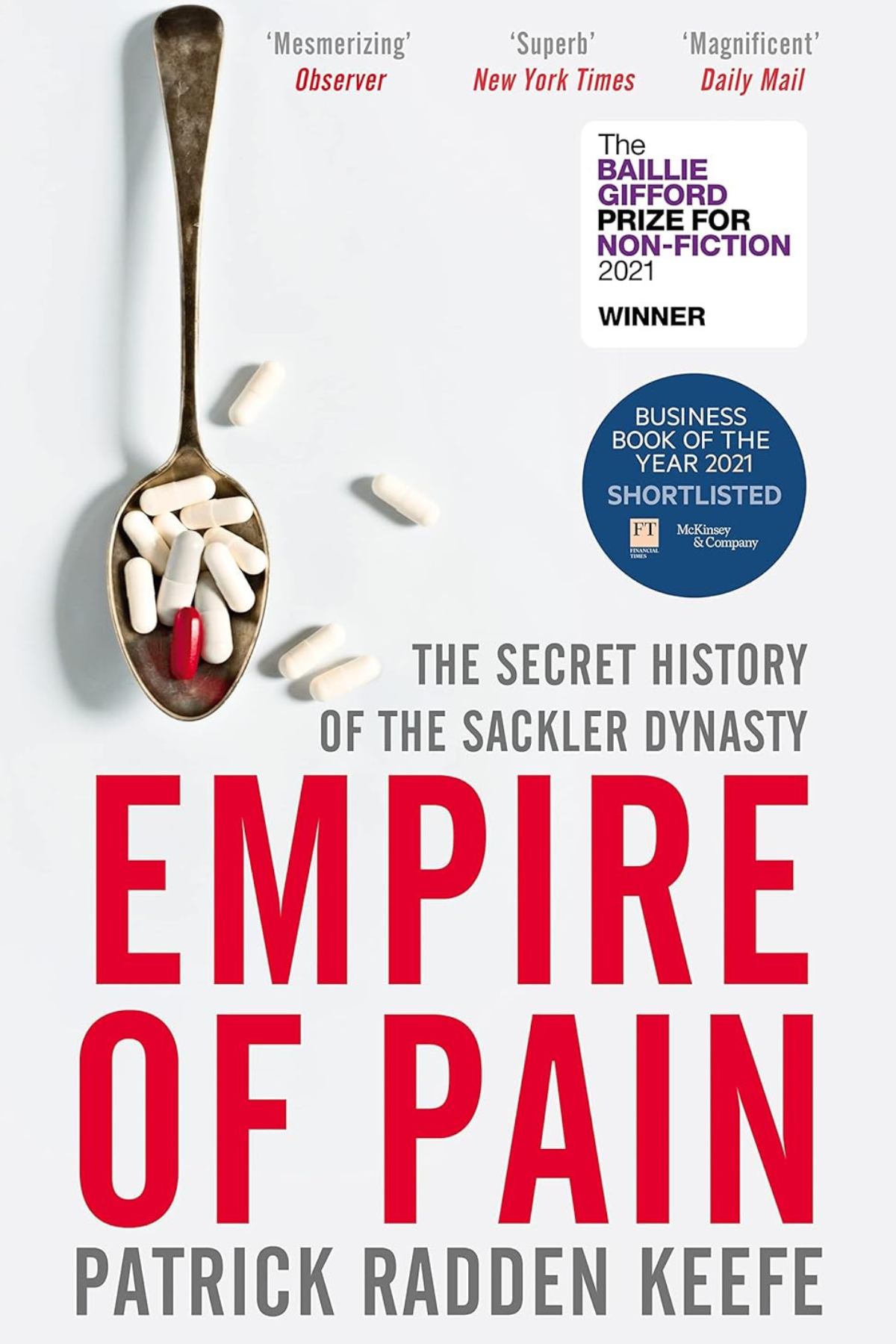I would submit, sir, that you and your family are addicted to money.
- Patrick Radden Keefe
First time in the past few years that I didn’t finish reading a book within one or two months—but it took me almost four months to read Empire of Pain, written by Patrick Radden Keefe. It is not that I no longer enjoy reading; reading is a lifetime hobby. Rather, it's because over the last couple of months, my spare time was heavily occupied with CFA exam preparation. After finishing the exam, I finally had time to rest and immerse myself in the book.
Where should I start? Speaking of painkillers, my understanding has always been that they're nothing but evil. I grew up being taught that all medicines are poisons in some way. I still vividly remember enduring immense pain in the hospital while stubbornly refusing to take the painkillers the nurse offered me. Am I biased? Do I misunderstand these drugs? Patrick approaches this complex issue from a fascinating angle—the three generations history of the Sackler family. The family begins with humble origins—Jewish immigrants arriving in America at a time when discrimination was rampant. The early story of the Sackler brothers, particularly Arthur Sackler, is deeply inspiring. Like every successful individual who rises from nothing, their journey was defined by effort and determination. Arthur Sackler was undoubtedly a business genius. He knew exactly how to close deals and skilfully market pharmaceuticals. As the eldest brother and a father figure, he supported and guided the entire family. Yet, ironically, as the brother aged and their wealth accumulated, their tight-knit brotherhood deteriorated. Perhaps their family dynamic perhaps mirrors countless families around the world. Was it the money that poisoned their family bonds, or was it something deeper? How can one create a family legacy that lasts forever? I don’t have the answers.
It's deeply tragic reading about how OxyContin has killed thousands and devastated millions of families globally. Equally ironic is how such a harmful drug repeatedly passed FDA approvals. Corruption within Purdue Pharma and the Sackler family allowed them to escape scrutiny over the decades. I agree with Patrick's nuanced view—the Sacklers aren't the only villains in this story, but they undeniably pioneered practices that led directly to the crisis. Economic analyses clearly show their significant role. Nevertheless, should other parties—other pharmaceutical companies, clinics, sales reps, and lawyers—be forgiven? Absolutely not. Yet, this is how our world often operates: the society demands a single target to shoulder the blame, and here it is the Sacklers. History continuously repeats itself—Enron, the financial crisis, and countless other scandals reveal flaws in our systems and perhaps underline something intrinsic in human nature: selfishness, deeply ingrained in our DNA. Each scandal serves as a painful correction, improving our institutions little by little. An optimist might say such tragedies won't recur, while a pessimist could argue that another OxyContin-like crisis is inevitable. Recently, I watched a YouTube documentary on a Mexican town where people of all ages are addicted to Coca-Cola, with diabetes killing thousands annually. Arguably, sugar can also be seen as an addictive substance. Could this be the next looming crisis? Again, I don’t have the answers.
Returning to the Sackler family, I have no empathy towards them—perhaps influenced by Patrick’s compelling yet objective narrative style. Their greed, denial, refusal to accept responsibility, and callous disregard for public health genuinely angered me. The Sackler name, once renowned, now feels cursed—a curse that will linger indefinitely.
Finally, Empire of Pain is a masterpiece of storytelling and a book I found hard to put down. It blends history, investigative journalism, business insight, and compelling human drama. It's a book I recommend.
